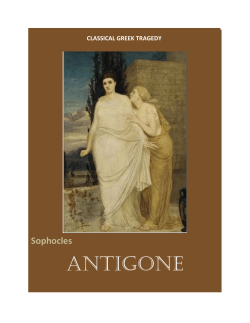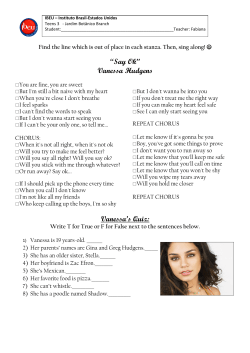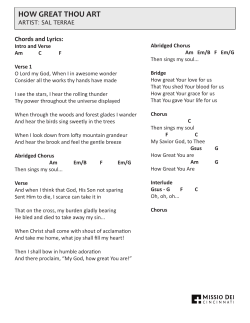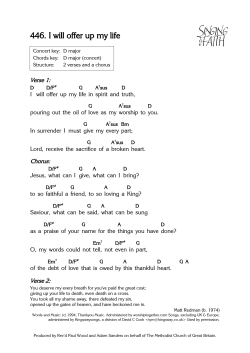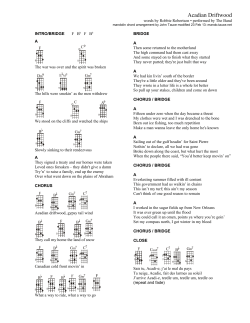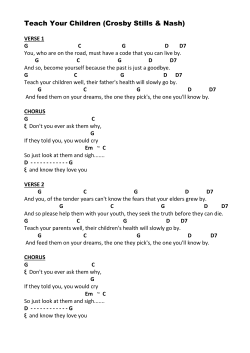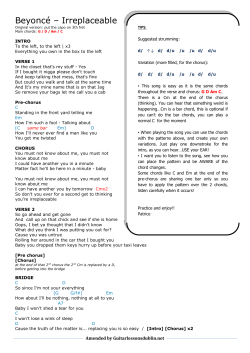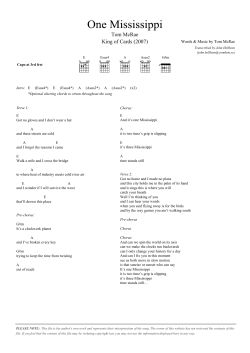
Antigone
A Summary of Sophocles’ Antigoneα CHARACTERS 1. Antigone—a daughter of Oedipus 2. A boy leading Teiresias 3. Chorus—Theban elders who embody the views of the people of the city 4. Creon—the King of Thebes 5. Eurydice—the wife of Creon 6. Haemon—the son of Creon 7. Ismene—a daughter of Oedipus 8. King’s attendants 9. Messenger 10. Queen’s attendants 11. Sentry 12. Soldiers 13. Teiresias—a blind prophet PROLOGUE Antigone has brought Ismene outside to avoid being heard (127). Antigone tells her sister how Creon has give funeral honors to one of their brothers, namely, Eteocles, but only shame to the other, namely, Polynices (127). “It is against you and me [Creon] has made this order,” said Antigone (127). Antigone then beseeches her sister to assist her in burying Polynices against the order (127). Ismene expresses disbelief and unwillingness to violate the law, explaining that their father, their mother, and their two brothers had all destroyed themselves and “what will be the end of us, / If we transgress the law and defy our king?” (128). She further argues that “we are women; it is not for us / To fight against men” (128). But Antigone insists that she herself will never desert her brother. Antigone maintains that Creon “has no right to keep me from my own” (128). An angry Antigone tells Ismene to forget about it, for she will bury Polynices herself (128)! Antigone yells at her sister to “Live, if you will; / Live, and defy the holiest laws of heaven,” (128) indicating her belief that the laws of heaven call for the burial of Polynices. Despite Antigone’s anger, Ismene is scared for her sister and urges her to be careful and discreet (128 – 129). Ismene goes into the palace, while Antigone leaves (129). PARADOS The Chorus recounts how the army of Polynices had swarmed on the city and how Polynices had been forced to flee before he could damage the city (129). The Chorus describes the Father of Heaven as having had smote the invader to the ground (130). Now, says the Chorus, is the time to celebrate, “to fill the temples / With glad thanksgiving for warfare ended” (130). EPISODE ONE The Chorus wonders why Creon has called it to gather for his special proclamation (130). Creon enters and addresses the Theban elders (130). Creon—averring, “No man who is his By Brian Tomasik, February – March 2004. Numbers in parentheses refer to pages in a particular (now unknown) edition of the play I from which I was reading. α *1* country’s enemy / Shall call himself my friend”—announces his proclamation concerning the sons of Oedipus (131). The Chorus obediently tells Creon that whatever he decrees for the dead, and for those still alive, is the law (132). As Creon turns to go, the Sentry enters (132). The Sentry is somewhat comical in his statements. For instance, he informs Creon that he is out of breath not because he has been running—to the contrary, he loitered on the way (132). The Sentry finally tells Creon that someone has buried the corpse in the holy ceremonial way and gone (133). The Sentry doesn’t know who might have done it—perhaps a pious passerby? (133). The men he had been with had accused each other, but all denied it (133). One man declared that the act must be reported to the king, so the group drew lots and the present Sentry was chosen (133). He was frightened because “A bringer of bad news expects no welcome” (133). The Chorus suggests that it might have been an act of the gods (133), but Creon dismisses that possibility, invoking as justification the ruin brought by Polynices (134). Claiming that the act was perpetrated by people who had been bribed by a group of disaffected rebels, Creon affirms that “Money! Money’s the curse of man, none greater” (134). Creon commands the Sentry to either find the perpetrator or face torture until the Sentry confesses to the whole truth; stated Creon, “In wickedness / You’ll find more loss than profit” (134). Once Creon has left, the Sentry affirms that whether or not the criminal is discovered, he himself will hide and flee (135). ODE ONE The Chorus extols the wonder of mankind, who “is the master of ageless Earth” and “lord of all things living” (135); “There is nothing beyond his power” (136). Says the Chorus, “Great honour is given / And power to him who upholdeth his country’s laws / And the justice of heaven” (136). EPISODE TWO The Chorus sees Antigone—“Unhappy maid”—approach; the Sentry has brought her with guards (136). Creon comes out of the palace (136). The Sentry admits that “an oath’s a very dangerous thing” because “Second thoughts may prove us liars”: soon after the Sentry swore not to return, he did so (136). The Sentry believes that he is now free “of the horrible business” (137). When Creon demands to know how the Sentry caught Antigone red-handed, the Sentry recounts the following story (137). He returned to the body and unburied it, lying in wait for the culprit to return (137). It lay in the hot sun for some hours until a violent dust storm stripped trees bare (137). After that subsided, there was a screaming girl, who—after cursing those who unburied the body—proceeded to utilize an urn in making an offering to the dead (137 – 138). The men ran down, caught her, and charged her with the previous crime, to which she responded with admission (138). After the Sentry has finished, Creon asks Antigone if she admits to the crime; she fails to deny it (138). The Sentry is discharged from blame and summarily exits (138). Antigone says that she knew well enough about the order and violated it knowingly (138). Her justification is that “That order did not come from God […]. I did not think your edicts strong enough / To overrule the unwritten unalterable laws / Of God and heaven, you being only a man” (138). Antigone realized that she would die either way, and she is glad to die sooner than later, to end her life of torment (138). *2* The Chorus deems Antigone foolish, but Creon expects that her “over-obstinate spirit” will be “soonest broken,” just as the strongest iron snaps when it is over-tempered in the fire (139). Creon, suspecting that Antigone’s sister was also involved, orders that she be brought before him (139). Antigone asks why Creon doesn’t kill her then and there, for she doesn’t care to listen to anything he says just as he heeds nothing she says; she has buried her brother and that is all she wished to do (139). Antigone maintains that Creon’s subjects believe her act to be honorable; they are only held back by fear (139 – 140). Creon denies this claim (140). Creon retorts that it is not right to give equal burial to the good and the bad; Antigone responds, “Who knows? In the country of the dead that may be the law” (140). Antigone wishes to share her love, not her hate (140). Creon sneers, “Go then, and share your love among the dead. / We’ll have no woman’s law here […]” (140). When Ismene enters, Creon pounces on her, demanding to know if she admits to abetting Antigone (140). Ismene replies, “I am as much to blame as she is” (140), but Antigone interjects “No. / That is not just. You would not lend a hand…” (141). Ismene says she is not ashamed to stand by Antigone now: “O sister, sister, let me share your death […]” (141). Antigone refuses, however, “You shall not claim / That which you would not touch” (141). Creon interjects, “I do believe the creatures both are mad; / One lately crazed, the other from her birth” (141). When Ismene tells Creon that he could never kill his own son’s bride, Creon says, “Oh, there are other fields for him to plow” (141). The Chorus concurs with Creon that Antigone’s “death, it seems, is certain” (142). In ordering that the women be taken inside, Creon mentions to “keep them within – / The proper place for women” (142). The women are taken away (142). ODE TWO The Chorus proclaims, “Happy are they who know not the taste of evil” (142). The one law that is eternal and immutable is that “For mortals greatly to live is greatly to suffer” (142 – 143). “Evil seems good / To him who is doomed to suffer; / And short is the time before that suffering comes” (143). EPISODE THREE As Haemon, Creon’s youngest son, arrives, the Chorus wonders if he is saddened by the doom of his promised bride (143). Creon asks Haemon if they can still be friends after the sentence of his promised wife (143). Haemon replies that he, being Creon’s son, will “always obey” the “wise decisions” of his father (143). Creon replies that fathers only wish for sons like Haemon and that bad sons are a disaster (143). Creon warns Haemon not to be fooled “By lust and the wiles of a woman” (143). Creon asserts that he had to sentence Antigone, for “How, if I tolerate / A traitor at home, shall I rule those abroad?” (144). “To transgress / Or twist the law to one’s own pleasure […] is sinful […]. He whom the State appoints must be obeyed / To the smallest matter, be it right – or wrong” (144). Continuing with the theme of the irrefrangibility of law is this quotation from Creon: “There is no more deadly peril than disobedience […]. Therefore, I hold to the law, / And will never betray it – least of all for a woman” (144). Haemon, beginning with the caveat that “I neither am / Nor wish to be clever enough to prove you wrong,” relates to Creon how he has heard “whispers” of pity for Antigone and expressions of her honor for having buried a brother killed in battle, statements which no one would tell Creon directly (145). Antigone, relates Haemon, “is the secret talk about the town” (145). Haemon—affirming that “there is nothing I can prize above / Your happiness and well- *3* being”—asks his father if there might not be some other way (145). “It is no weakness for the wisest man / To learn when he is wrong, know when to yield,” Haemon tells his father (145). Continuing with the theme of the shattering of things that are obstinate and the adaptation of things that can realize the new urgencies of new circumstances, Haemon tells his father that “Trees bending to the torrent live unbroken, / While those that strain against it are snapped off” (145). “[G]ood as it is to have infallible wisdom […] the next best thing / Is to be willing to listen to wise advice,” concludes Haemon (145). The Chorus affirms that both Creon and Haemon have made legitimate points (145 – 146). Creon is indignant at the suggestion that he take advice from “a fellow of his age,” and he asks Haemon, “Would you call it right to admire an act of disobedience?” (146). Revealing his stance on the matter of civil disobedience, Haemon replies, “Not if the act were also dishonourable” (146). Haemon defends the righteousness of the act by asserting that the “people of Thebes” thought the deed honorable, to which Creon retorts, “The people of Thebes! / Since when do I take my orders from the people of Thebes?” (146). When Haemon challenges him— “Isn’t that a rather childish thing to say”—Creon responds that “I am king, and responsible only to myself” (146). Haemon tells his father, “You’d be an excellent king – on a desert island” (146). When Creon charges Haemon with being on the side of Antigone, Haemon responds that, no, he is on the side of his father and that the only reason he has refuted his father is that he knows that Creon is wrong (146). When Creon tells his son, “You’ll never marry her this side of death,” Haemon responds, “Then, if she dies, she does not die alone” (146). When Creon calls aside for Antigone to be brought out so that Haemon will witness her execution, Haemon— saying “That sight I’ll never see”—exits (147). Creon tells the Chorus that only Antigone will be killed, for only she was guilty (147). When the Chorus asks in what manner the execution will occur, Creon replies that Antigone will be “taken to a desert place,” whereat she shall be “walled up / Inside a cave, alive, with food enough / To acquit ourselves of the blood-guiltiness / That else would lie upon our commonwealth” (147). “There she may pray to Death, the god she loves, / And ask release from death; or learn at last / What hope there is for those who worship death” (147). He exits (147). ODE THREE The Chorus tells of the power of love, which can win all battles and can influence both men and gods (147 – 148). Love can corrupt the best of men, driving them to sin (148). “Aphrodite immortal / Works her will upon all” (148). EPISODE FOUR Antigone, guarded, enters (148). The Chorus, now sympathetic to Antigone, weeps for her (148). The Chorus tells Antigone that “glory and praise” will accompany her when she dies (148). Antigone accuses the Chorus of mockery, of making her “a laughing-stock while I yet live” (149). The Chorus says Antigone must make amends for the sin of her father, the curse of the house of Labdacus (149). The Chorus tells Antigone, “You are the victim of your own selfwill” (149). Creon enters and sends Antigone away at once to be closed up in the rock-vaulted tomb (150). Antigone is confident she will see her father, her mother, and her brother—all of whom she buried herself (150). Antigone would not have violated the law for a husband or a son because she could always find another husband or have another son; but she only had one brother *4* (150). Antigone makes one last statement about being punished for honouring “Those things to which honour truly belongs” before she is led away (151). ODE FOUR The Chorus refers to the Greek character of Danae, whose example taught an important fact: “So strong is Destiny, / No wealth, no armoury, no tower, / No ship that rides the angry sea / Her mastering hand can stay” (151). It alludes to various other characters in Greek myths (151 – 152). EPISODE FIVE A boy leads Teiresias, the blind prophet, in to see Creon (152). Creon initially tells Teiresias that he is welcome here; he says there was never a time when he failed to heed the prophet’s advice (152). Teiresias tells Creon that he stands “on a razor’s edge” (152). Teiresias has seen “birds in vicious combat” that are “Full of foreboding” (152 – 153). He performed a “sacrifice upon the altar fire” that showed “signs of failure” (153). Teiresias then tells Creon, “The blight upon us is your doing”; it is the spilt blood of the “ill-fated son” of Oedipus that is causing “ill-omened voices” (153). “Mark this, my son: all men fall into sin. / But sinning, he is not for ever lost / Hapless and helpless, who can make amends / And has not set his face against repentance. Only a fool is governed by self-will” (153). Teiresias tells Creon the same thing Haemon told his father: “My words […] should be acceptable, being for your good” (153). Creon accuses Teiresias of using him as “your commodity / To trade and traffic in for your advancement” (153). Creon says all the money you could ever produce would not convince me to bury Polynices, the traitor (153 – 154). “But great and terrible is the fall, Teiresias, / Of mortal men who seek their own advantage / By uttering evil in the guise of good” (154). “[A]ll prophets seek their own advantage” (154). Teiresias remarks, “Ah, is there any wisdom in the world?” (154). He and Creon quarrel over the right course of action and the self-interested motivations of the other (154). Creon, thinking that Teiresias seeks personal gain, tells him that “my will [is not] for sale, sir, in your market” (154). Teiresias tells Creon fully what is on his mind: Within one or two days, you, Creon, will have given your son to death in payment for two other debts—1) “the life that you have sent to death,” namely, Antigone 2) “the dead still lying above ground / Unburied, unhonoured,” namely, Polynices (154). “You cannot alter this. The gods themselves / Cannot undo it. It follows of necessity / From what you have done” (155). “Even now the avenging Furies, / The hunters of Hell that follow and destroy, / Are lying in wait for you” (155). Teiresias tells his boy to lead him away, and they exit (155). The Chorus tells Creon that it has never known the prophet’s prophesies to be false (155). Creon feels hard ambivalence: Should he yield or should he maintain his position as the curse comes (155)? “Both ways are hard” (155). When the Chorus begins to suggest a course of action, Creon—in a major shift of attitude—says “What must I do? Tell me, and I will do it” (155). The Chorus exhorts Creon to 1) release Antigone 2) properly bury Polynices (155). Creon acts quickly, ordering slaves to come with him to free Antigone (156). “Now I believe / It is by the laws of heaven that man must live” (156). He exits (156). ODE FIVE *5* The Chorus sings a hymn to Dionysus, noting that Dionysus loves to be in Thebes the most (156). The Chorus tells the “Healer of all [of Thebes’s] ills” to “Come swiftly” (156). EXODOS A messenger enters to tell the people of Thebes the news (157). The messenger first declares that people are not fixed in good or evil; rather, they can change their course of action (157). Creon, announces the messenger to the people of Thebes, was once enviable in his success, but now, he “Is living death,” for he is living “life without life’s joys” (157).* Finally, the messenger tells the Chorus the specific news: Haemon has slain himself at the actions of his father (157). All happened as Teiresias had warned it would (157). Eurydice, the Queen, enters, attended by women (157). She tells the messenger that she came upon overhearing bad news (158). She wants to hear the report; “I am not unacquainted with grief, and I can bear it” (158). The messenger recounts the events (158). 1) The messenger accompanied Creon to the edge of the field where lay Polynices, whose body had been “mauled by the dogs” (158). They prayed for him and burned the remnants of his body (158). 2) That done, they went to Antigone’s rock-chamber (158). As they neared it, Creon heard his son’s screams and ordered others to go quickly ahead to find out what was happening (158). 3) In the cave, the servants found Antigone hanging by the neck of a rope woven from her own dress (159). Haemon stood with his arms around her (159). 4) Creon enters and beseeches Haemon to “come away” (159). Haemon spat in his father’s face and “Drew sword and struck out”; Creon fled unscathed (159). 5) Haemon stabbed himself and died holding his love (159). Describing a theme similar to that in Romeo and Juliet, the messenger says, “Two bodies lie together, wedded in death, / Their bridal sleep a witness to the world / How great calamity can come to man / Through man’s perversity” (159). Eurydice goes quickly back into the palace (159). The Chorus wonders why Eurydice has done this; the messenger hopes that it was to vent her grief in privacy, for “She is too wise, I think, / To take a false step rashly” (159). The messenger goes in to the palace to see if Eurydice did in fact have “some fatal purpose in her grief” (160). Creon returns with the body of Haemon (160). He says, “O the curse of my stubborn will!” (160). The Chorus laments, “Alas, too late you have seen the truth” (160). Creon says that “God has delivered this heavy punishment […]. Such is the bitter affliction of mortal man” (160).+ The messenger returns from the palace to report that Eurydice, Creon’s wife, has committed suicide (160). Eurydice had held a knife, cursed Creon as the slayer of two sons, and drove the sword into her heart (161). Creon wants a sword to kill himself (161). “Lead me away, away. I live no longer” (161). The Chorus comments, “The future is not to be known; our * In declaring that “none can foretell what will be from what is,” the messenger seems to be rejecting determinism and is perhaps—based on the statement about the potential for people to change their virtue—promulgating free will. More likely on the basis of the Creon example is simply the idea that the fortunes of people can change unexpectedly; this was exactly the lesson taught by the final Choral ode in the first play of the trilogy, Oedipus Rex. + This relates to the Choral statement in ODE TWO wherein the Chorus declares that the one law that is eternal and immutable is that “For mortals greatly to live is greatly to suffer” (142 – 143). The Chorus continued, “Evil seems good / To him who is doomed to suffer; / And short is the time before that suffering comes” (143). This now makes perfect sense in view of Creon’s situation: Creon, it is now apparent, was “doomed to suffer.” His refusal to relent in his punishment of Antigone was “evil,” but he truly believed that it was the “good” course of action. And as we have seen, it was not long before Creon’s suffering came. *6* present care / Is with the present; the rest is in other hands […]. What is to be, no mortal can escape” (161). Creon exits in hopelessness (162). The final statement of the Chorus is as follows: “Of happiness the crown / And chiefest part / Is wisdom, and to hold / The gods in awe. / This is the law / That, seeing the stricken heart / Of pride brought down, / We learn when we are old” (162). The message is that happiness comes from acting wisely and from revering the gods. They exit (162). *7*
© Copyright 2025




